What does it take to convert a farm to an organic system? Follow along with our quarterly New Organic Entrants Diary to find out.
In our first instalment, we want you to meet the farmers we will be following over the next two years.
With the Government’s 2021 Organic Scheme application deadline long since passed, we wanted to know: have our farmers been accepted into the Scheme, and what made them want to convert to organics in the first place?
Kevin O’Hanlon, Co Carlow
Kevin manages two farms – one as his full-time job, and the other at home. Between the two, he farms dairy, cereals, sheep, pigs and chickens.
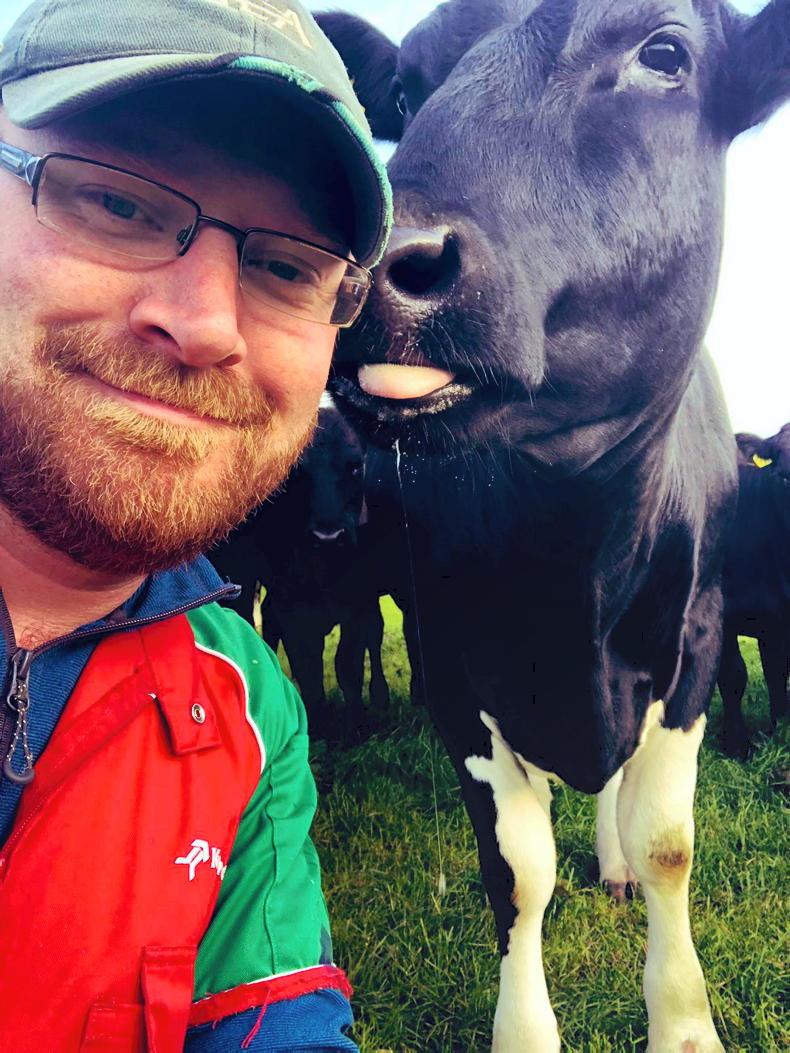
Kevin O'Hanlon manages a dairy farm as well as his own mixed farm at home in Co Carlow - both are currently in conversion.
The farm he manages full time is dairy, and both this farm and his home farm are going through conversion together. He says he has always been interested in converting to an organic system and was pleased the owner of the farm he manages was also interested.
The farm he manages is over 300ac in size, while his home set-up is smaller; closer to 10ha (25ac) in size.
“The farm was a typical farm,” he says of previous years, “going up after every round of grazing with fertiliser. We would have been up at the top end of units per hectare; we started reducing about three years ago now – it started with the drought in 2018.”
In 2020, they significantly reduced the amount of fertiliser used. This reduction was timed well with their decision to apply for the 2021 Organic Scheme and begin the conversion process.
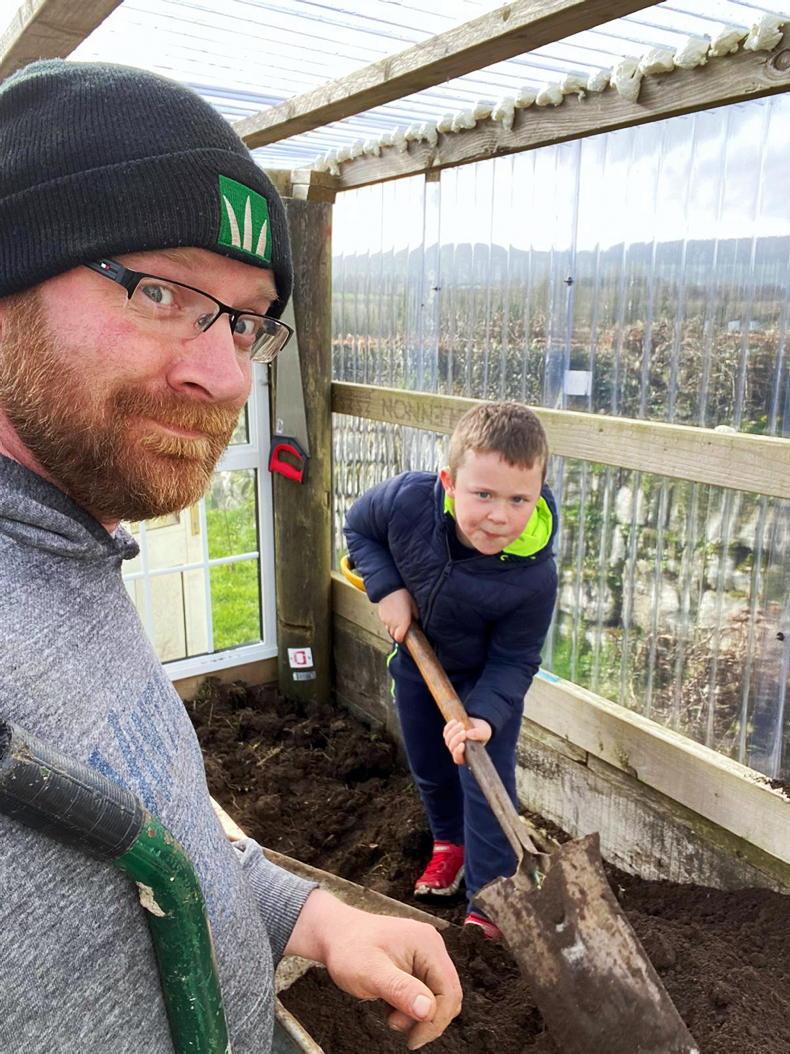
Kevin has four children. His son, Kaleb (pictured), loves to help his dad with the farm work.
“We put out 17 units of fertiliser this spring on the grazing platform (the last before converting), and the spring oats got a bit at sowing, but hasn’t got anything since,” Kevin says. “We’ve had no issue with growth this year.”
On the dairy farm, there are currently 160 cows on the grazing platform. They also have 70 calves. He says, the way things are currently going, he sees no reason to reduce the herd number.
“This is all in theory – and we’ll see how it goes – but I’ve no intention of reducing numbers.”
George McAdoo, Co Monaghan
Farming beef, lamb, cereals and laying hens on 200ac, George started farming in 2002. His father would have previously farmed beef and lamb. In 2011, they converted the laying hens to a free-range system.
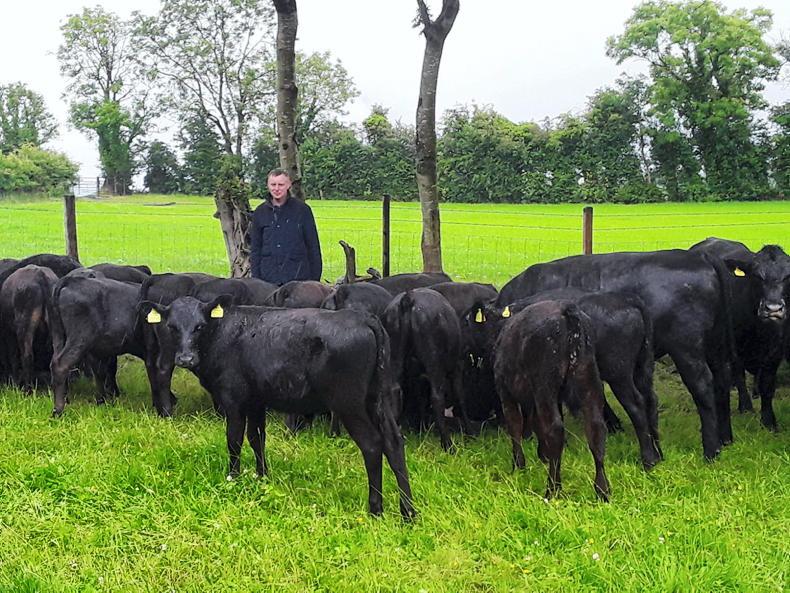
George McAdoo farms beef, lamb, cereals and laying hens on his 200ac farm in Co Monaghan.
“We had sucklers and we’re rearing good-quality Angus calves,” he says. “I’ve been thinking of converting to organic for years but never got to it. Because we’re going in non-simultaneous conversion, the land is being converted first. We have 18 months to do that and then any cattle we buy in will have to be organic.”
George says he has yet to hear about whether the farm has been accepted into the Organic Scheme.

George McAdoo farms beef, lamb, cereals and laying hens on his 200ac farm in Co Monaghan.
“We got a letter {from the Organic Trust] to tell us we’d be certified organic in two years’ time,” he says. “We’ve heard nothing at all about whether we were accepted into the Scheme.”
George currently has 6,000 organic pullets, which he rears for nearby Corby Rock Eggs; he recently built an organic pullet shed and has been operating it for the past several weeks. He continues to work on making slight changes and improvements to his farm infrastructure, including a shed with straw bedding for the cattle.
As they are in non-simultaneous conversion and are first focusing on converting their land, they are no longer using chemical fertilisers or sprays. George says he gave the fields their final round of fertiliser this past February and that growth has been good, so far, this year.
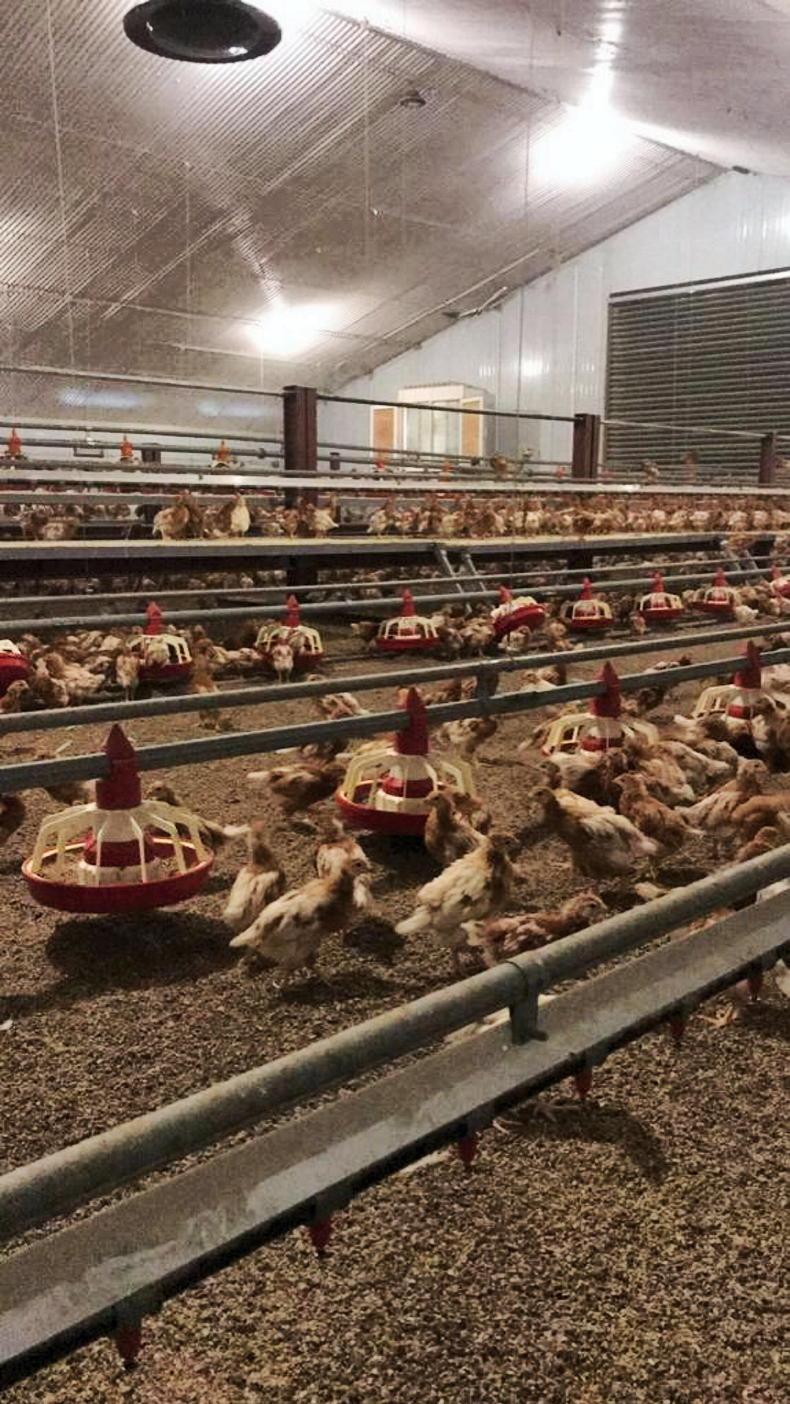
George rears organic pullets (young laying hens) for nearby Corby Rock Eggs.
“It’s been very good this past month; the dry weather suits us,” he says. “We’re currently growing 14ac of barley and oats and these will be used on the farm for feeding the sheep and calves over the winter.”
George’s lamb is currently sold to Dawn Meats and his calves, raised for beef, go to ABP Clones. As he is currently in conversion, he will not be getting a premium on his produce until the farm and produce is certified organic.
Dan Hogan and
Una Wycherley,
Co Tipperary
Dan and Una’s farm, Larkin’s Hill Farm, is located in Puckane, Co Tipperary.

Daniel Hogan farms suckers, horticulture and a small amount of tillage with his partner, Una.
“We’ve a suckler beef herd, we also have a vegetable enterprise and a small amount of tillage,” Dan says. “With the barley, we will be keeping it for feed for our own cattle and the straw for loose bedding over winter this year. Veg-wise, we’re in a couple of local SuperValus, the Urban Co-op (in Limerick) and we supply Harvest Day, which is a vegetable box scheme.”
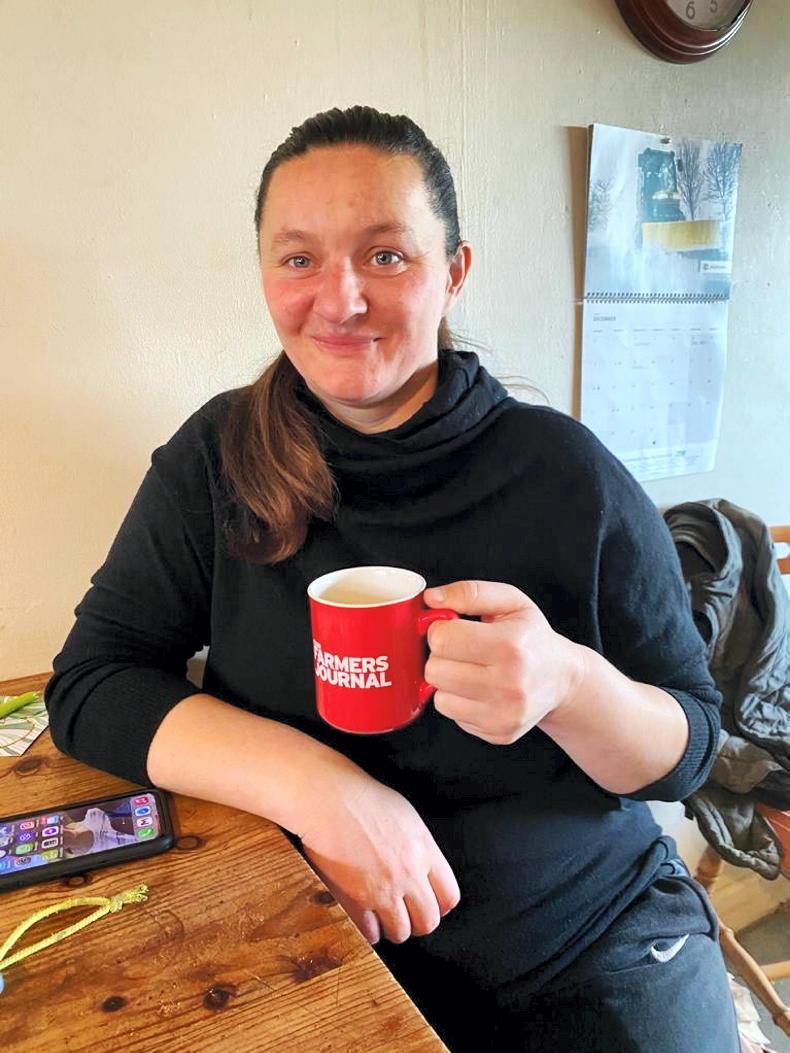
Una has studied organic farming methods extensively; she has also completed an apprenticeship in organic horticulture.
Dan and Una are farming on 125ac, on which they have about 10ac in mixed vegetable crops, 10ac in barley and the remaining land for grazing their Limousin X Simmental cattle. The grazing land is made of a mix of diverse “older pastures” and newly reseeded red clover and Italian rye grass ley for silage. They also have an established summer meadow which was in the Green Low-Carbon Agri-Environment Scheme (GLAS) up to this year.
“We haven’t gotten confirmation yet that we’ve been accepted into the organic scheme,” Dan says, “we have just contacted our planner to see if he had any updated information for us. He is very confident our application should be approved due to the nature of our farm and that we would have scored highly on the mixed enterprises on the holding.”
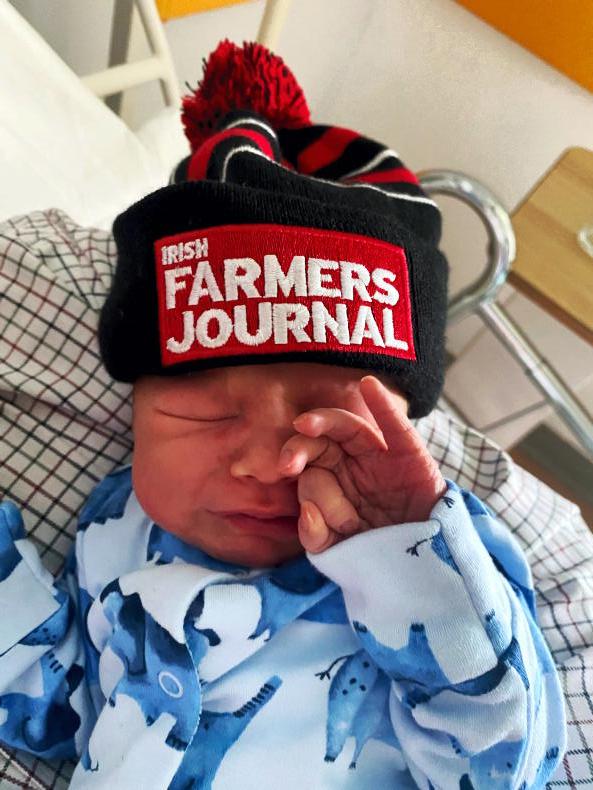
Daniel and Una recently welcomed their second child to the family, so 2021 has been an extra-busy year for them.
As if the couple weren’t busy enough, they recently welcomed a baby boy to the farm; joining their 14-year-old daugher. Dan says life can get a bit hectic.
“Sure look, it’s kind of mad,” he says. “At the same time as adding to our family we were trying to develop our business, as well as go through the conversion process. We do a lot of Instagram promotion, it’s a very handy tool to be able to showcase our produce and reach our customers near and wide. It’s amazing the amount of business you can generate from social media.”
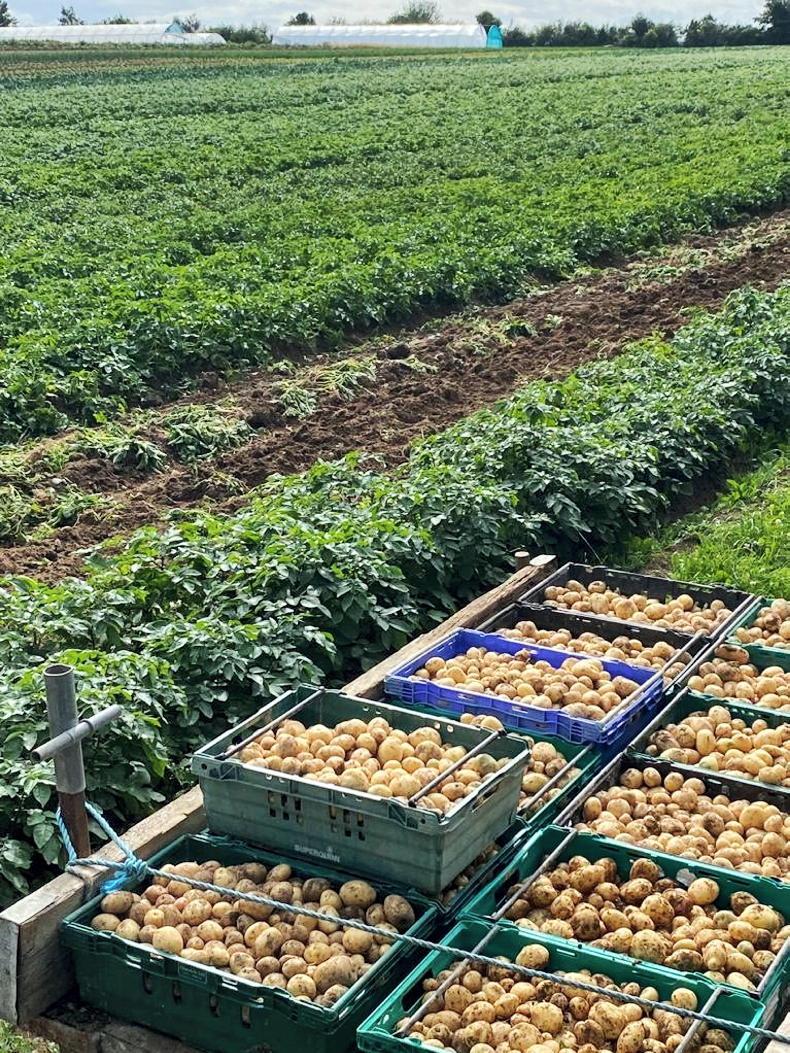
Una and Daniel operate Larkin's Hill Farm; they sell their vegetables to the Urban Co-op in Limerick, local shops and Harvest Day vegetables boxes.
Dan says he and Una would have always been interested in organic farming; Una having done an apprenticeship in organic horticulture and Dan having the Green Cert in farming and organic horticulture training. He says up until recently they were happy promoting their produce as locally-grown and weren’t too bogged down with the certification aspect. However, with their future in mind and as their produce goes further afield, organic certification makes sense.
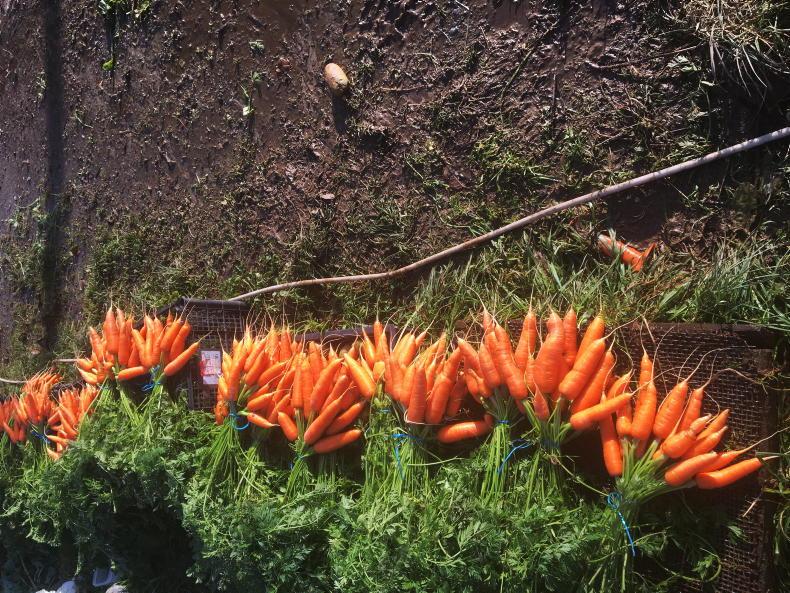
Una Wycherly and Daniel Hogan grow a vareity of vegetables on their farm in Puckane, Co Tipperary.
“If you want to hit the bigger audience, have a sustainable business and be commercially viable going forward (both protecting the valuable resources we have and also financially), it helps to get organic certification.”
What does it take to convert a farm to an organic system? Follow along with our quarterly New Organic Entrants Diary to find out.
In our first instalment, we want you to meet the farmers we will be following over the next two years.
With the Government’s 2021 Organic Scheme application deadline long since passed, we wanted to know: have our farmers been accepted into the Scheme, and what made them want to convert to organics in the first place?
Kevin O’Hanlon, Co Carlow
Kevin manages two farms – one as his full-time job, and the other at home. Between the two, he farms dairy, cereals, sheep, pigs and chickens.

Kevin O'Hanlon manages a dairy farm as well as his own mixed farm at home in Co Carlow - both are currently in conversion.
The farm he manages full time is dairy, and both this farm and his home farm are going through conversion together. He says he has always been interested in converting to an organic system and was pleased the owner of the farm he manages was also interested.
The farm he manages is over 300ac in size, while his home set-up is smaller; closer to 10ha (25ac) in size.
“The farm was a typical farm,” he says of previous years, “going up after every round of grazing with fertiliser. We would have been up at the top end of units per hectare; we started reducing about three years ago now – it started with the drought in 2018.”
In 2020, they significantly reduced the amount of fertiliser used. This reduction was timed well with their decision to apply for the 2021 Organic Scheme and begin the conversion process.

Kevin has four children. His son, Kaleb (pictured), loves to help his dad with the farm work.
“We put out 17 units of fertiliser this spring on the grazing platform (the last before converting), and the spring oats got a bit at sowing, but hasn’t got anything since,” Kevin says. “We’ve had no issue with growth this year.”
On the dairy farm, there are currently 160 cows on the grazing platform. They also have 70 calves. He says, the way things are currently going, he sees no reason to reduce the herd number.
“This is all in theory – and we’ll see how it goes – but I’ve no intention of reducing numbers.”
George McAdoo, Co Monaghan
Farming beef, lamb, cereals and laying hens on 200ac, George started farming in 2002. His father would have previously farmed beef and lamb. In 2011, they converted the laying hens to a free-range system.

George McAdoo farms beef, lamb, cereals and laying hens on his 200ac farm in Co Monaghan.
“We had sucklers and we’re rearing good-quality Angus calves,” he says. “I’ve been thinking of converting to organic for years but never got to it. Because we’re going in non-simultaneous conversion, the land is being converted first. We have 18 months to do that and then any cattle we buy in will have to be organic.”
George says he has yet to hear about whether the farm has been accepted into the Organic Scheme.

George McAdoo farms beef, lamb, cereals and laying hens on his 200ac farm in Co Monaghan.
“We got a letter {from the Organic Trust] to tell us we’d be certified organic in two years’ time,” he says. “We’ve heard nothing at all about whether we were accepted into the Scheme.”
George currently has 6,000 organic pullets, which he rears for nearby Corby Rock Eggs; he recently built an organic pullet shed and has been operating it for the past several weeks. He continues to work on making slight changes and improvements to his farm infrastructure, including a shed with straw bedding for the cattle.
As they are in non-simultaneous conversion and are first focusing on converting their land, they are no longer using chemical fertilisers or sprays. George says he gave the fields their final round of fertiliser this past February and that growth has been good, so far, this year.

George rears organic pullets (young laying hens) for nearby Corby Rock Eggs.
“It’s been very good this past month; the dry weather suits us,” he says. “We’re currently growing 14ac of barley and oats and these will be used on the farm for feeding the sheep and calves over the winter.”
George’s lamb is currently sold to Dawn Meats and his calves, raised for beef, go to ABP Clones. As he is currently in conversion, he will not be getting a premium on his produce until the farm and produce is certified organic.
Dan Hogan and
Una Wycherley,
Co Tipperary
Dan and Una’s farm, Larkin’s Hill Farm, is located in Puckane, Co Tipperary.

Daniel Hogan farms suckers, horticulture and a small amount of tillage with his partner, Una.
“We’ve a suckler beef herd, we also have a vegetable enterprise and a small amount of tillage,” Dan says. “With the barley, we will be keeping it for feed for our own cattle and the straw for loose bedding over winter this year. Veg-wise, we’re in a couple of local SuperValus, the Urban Co-op (in Limerick) and we supply Harvest Day, which is a vegetable box scheme.”

Una has studied organic farming methods extensively; she has also completed an apprenticeship in organic horticulture.
Dan and Una are farming on 125ac, on which they have about 10ac in mixed vegetable crops, 10ac in barley and the remaining land for grazing their Limousin X Simmental cattle. The grazing land is made of a mix of diverse “older pastures” and newly reseeded red clover and Italian rye grass ley for silage. They also have an established summer meadow which was in the Green Low-Carbon Agri-Environment Scheme (GLAS) up to this year.
“We haven’t gotten confirmation yet that we’ve been accepted into the organic scheme,” Dan says, “we have just contacted our planner to see if he had any updated information for us. He is very confident our application should be approved due to the nature of our farm and that we would have scored highly on the mixed enterprises on the holding.”

Daniel and Una recently welcomed their second child to the family, so 2021 has been an extra-busy year for them.
As if the couple weren’t busy enough, they recently welcomed a baby boy to the farm; joining their 14-year-old daugher. Dan says life can get a bit hectic.
“Sure look, it’s kind of mad,” he says. “At the same time as adding to our family we were trying to develop our business, as well as go through the conversion process. We do a lot of Instagram promotion, it’s a very handy tool to be able to showcase our produce and reach our customers near and wide. It’s amazing the amount of business you can generate from social media.”

Una and Daniel operate Larkin's Hill Farm; they sell their vegetables to the Urban Co-op in Limerick, local shops and Harvest Day vegetables boxes.
Dan says he and Una would have always been interested in organic farming; Una having done an apprenticeship in organic horticulture and Dan having the Green Cert in farming and organic horticulture training. He says up until recently they were happy promoting their produce as locally-grown and weren’t too bogged down with the certification aspect. However, with their future in mind and as their produce goes further afield, organic certification makes sense.

Una Wycherly and Daniel Hogan grow a vareity of vegetables on their farm in Puckane, Co Tipperary.
“If you want to hit the bigger audience, have a sustainable business and be commercially viable going forward (both protecting the valuable resources we have and also financially), it helps to get organic certification.”














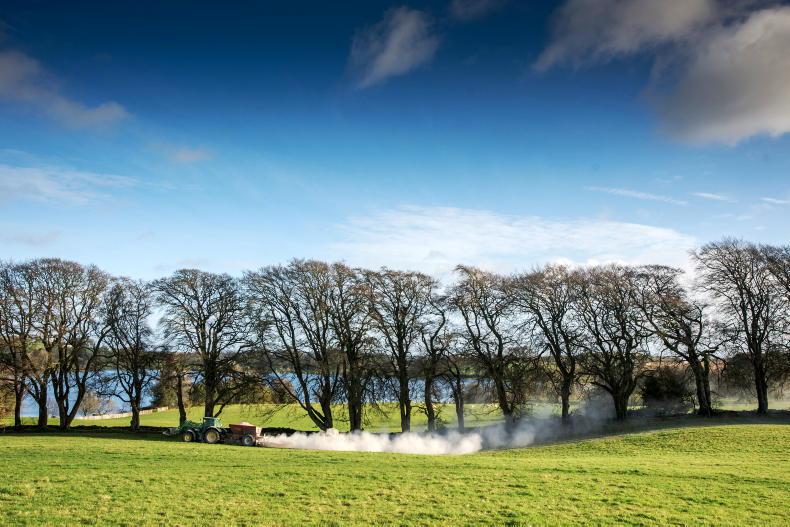
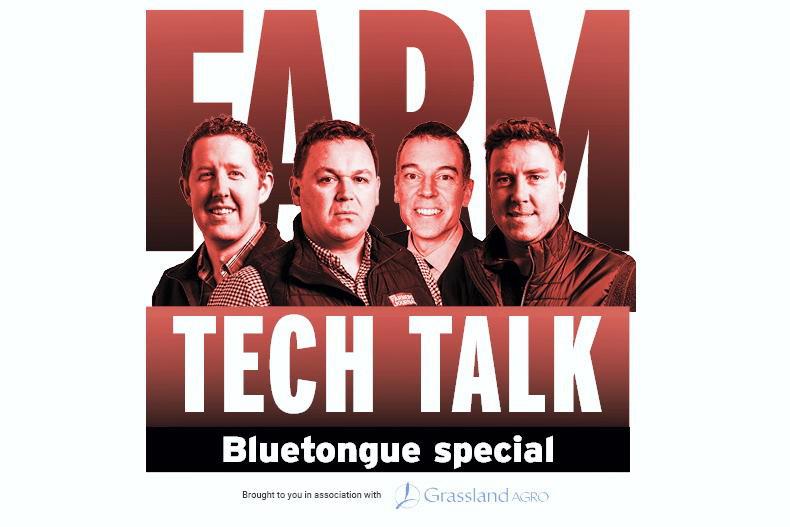
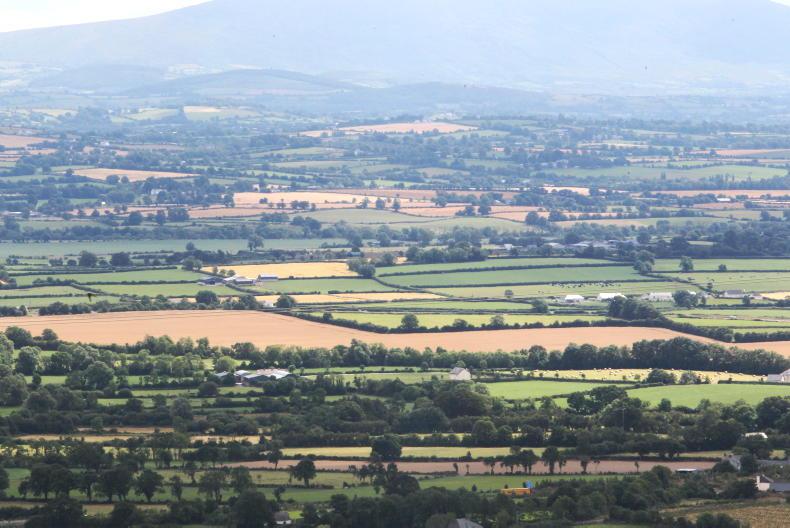
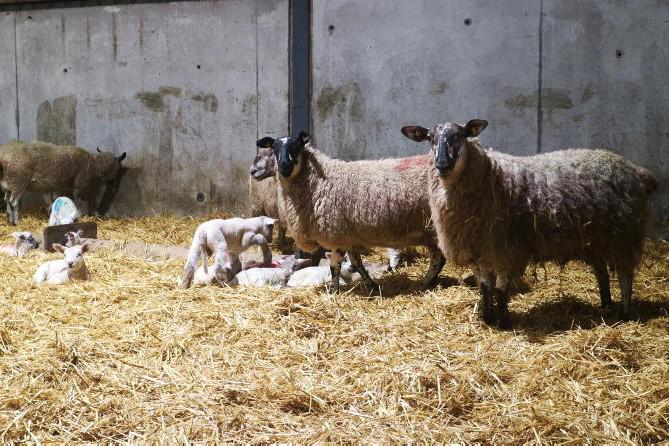
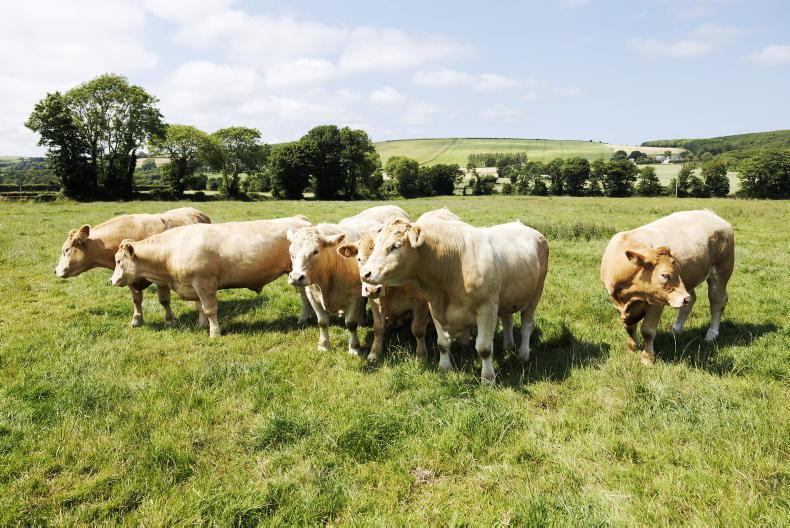
SHARING OPTIONS